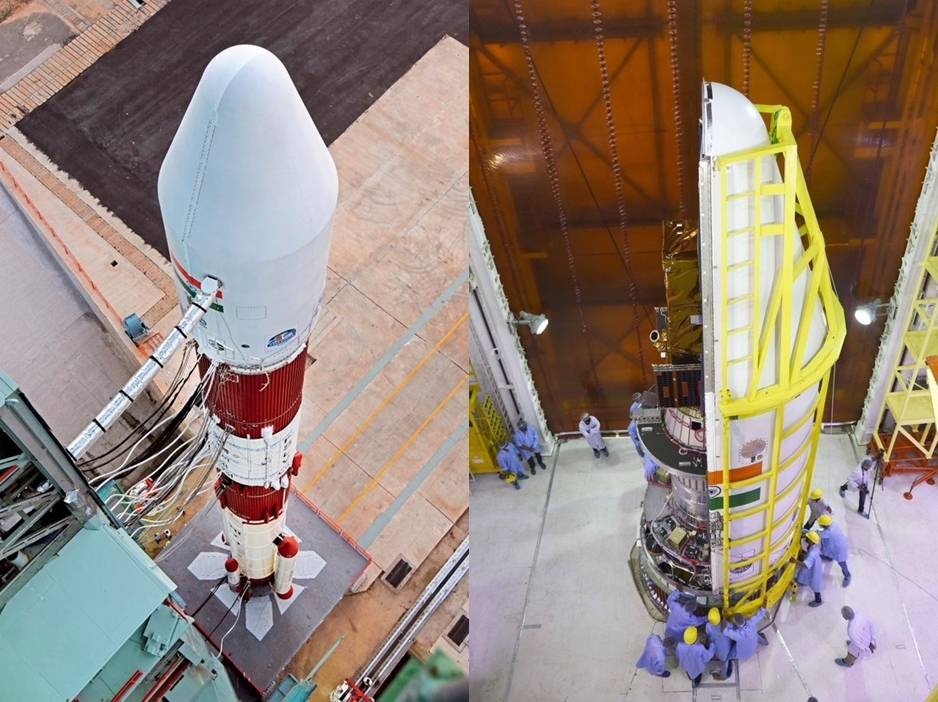ISRO officials used to say the PSLV-XL version would cost about Rs 190 crore and for five, it will be about Rs 950 crore…reports Venkatachari Jagannathan
The Hindustan Aeronautics Ltd and Larsen & Toubro Ltd (L&T) consortium has turned out to the lowest price bidder for making five Polar Satellite Launch Vehicle (PSLV) XL variant rocket out of the three who had bid, said a space sector official.
With this, the transfer of PSLV-XL production outside of Indian Space Research Organisation (ISRO) moves a step forward.
“The Hindustan Aeronautics and L&T consortium has turned out to be the lowest bidder to make five PSLV-XL rockets. Now other agreements have to be signed between NewSpace India Ltd (NSIL) and the winning consortium before awarding the contract,” an official, preferring anonymity, told IANS.
According to the official, the remaining activities are expected to be completed in a couple of months’ time, if everything goes smoothly.
“The first PSLV-XL rocket is expected to be realised in 24 months from the date of award of the contract. Subsequently one rocket every six months has to be delivered to NSIL,” the official added.
The first rocket is expected to be realised sometime during the second half of 2024 and the balance four rockets will be delivered during 2025 and 2026 at two rockets per year.
This is the first time in the ISRO’s history that an entire rocket, including the heatshield, is to be made outside of the space agency.
However, the official declined to comment whether the successful bid amount was around Rs 825 crore (about Rs 165 crore per rocket) excluding taxes.
According to a NSIL official, the selected industry player can use ISRO facilities for a fee, and it is the industry’s responsibility to deliver the rocket.
It will be interesting to see the net cost of the rocket for NSIL.
ISRO officials used to say the PSLV-XL version would cost about Rs 190 crore and for five, it will be about Rs 950 crore.
The other two bids for the project were made by Bharat Heavy Electrical Ltd (BHEL) and Bharat Electronics Ltd (BEL)-Adani Enterprises Ltd (AEL) and Bharat Earth Movers Ltd (BEML) consortium.
The PSLV-XL rocket, weighing about 320 ton, is a four stage rocket with each stage powered by solid and liquid fuel, alternatively.
According to the space sector official, the Hindustan Aeronautics-L&T combine will deliver all the stages, including the heat shield, at ISRO’s rocket port in Sriharikota in Andhra Pradesh.
The rocket’s first stage will be assembled at the launch pad in Sriharikota.
The stacking of the rocket stages and the satellite will be done by ISRO.
The NSIL will market the rockets for commercial flights. The rockets will also be used for national space missions.
According to a NSIL official, the company will deal with Hindustan Aeronautics, the leader of the consortium, and it is not known how the two companies are structuring their set up for the project.
Though the two companies are supplying components for ISRO, it is not known as to the quantum of their supplies to make a PSLV-XL rocket.
The official also said after seeing the working of the model, the company may decide on transferring the entire PSLV production to industry players.
Then there will be another tender for the same as the dynamics would differ, NSIL official said.
The NSIL will also issue an Expression of Interest (EOI) for making the ISRO’s small rocket – Small Satellite Launch Vehicle (SSLV)– which is under development.
The selection process for SSLV will be simpler as NSIL has the experience in choosing the industry partner for making the PSLV rocket.
Further the SSLV is of simpler technology – it is powered by solid fuel motors.
Following that will be the EOI for making ISRO’s heavier rocket Geosynchronous Satellite Launch Vehicle Mk III (GSLV-MkIII), the official added.
Meanwhile NSIL has issued an ‘Interest Explanatory Note’ to transfer ISRO’s technology for making the small satellite – India Mini Satellite-1 (IMS-1) Bus.
It is learnt the company has received about 10-15 responses for the same.
ISRO’s UR Rao Satellite Centre (URSC) has developed a small satellite platform which would enable low cost access to space by providing a dedicated platform for payloads for earth imaging, ocean and atmospheric studies, microwave remote sensing and space science missions with a quick turnaround time.
The satellite will have a payload mass of 30kg and a life space of two years.
The NSIL has the mandate of building, and launching rockets and satellites through industry partners and also providing space-based services through remote sensing and communication satellites.
Last year, the company issued the Request for Proposal (RFP) from industries for making five PSLV rockets.

Leave a Reply